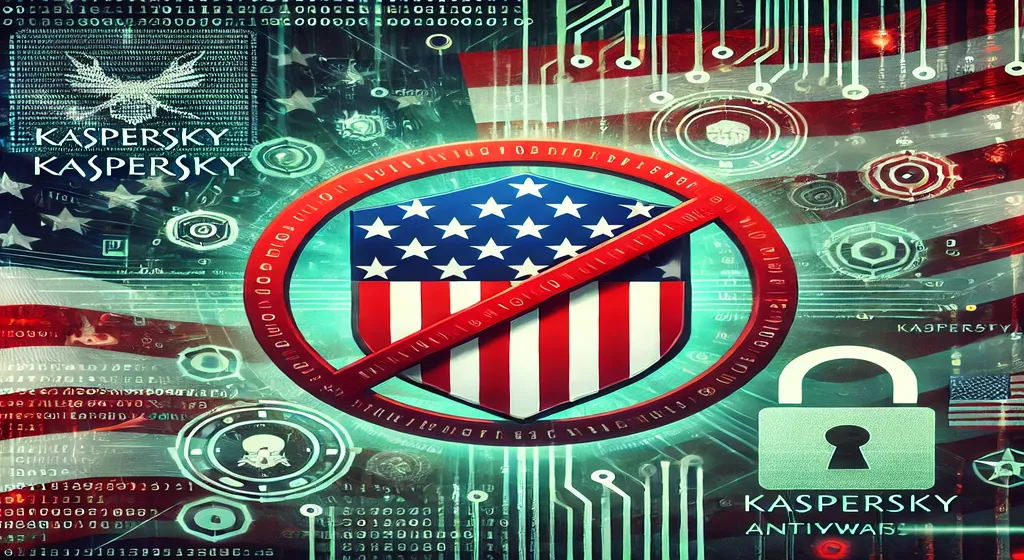- Biden Administration Bans Kaspersky Antivirus 2024
- The Rationale Behind the Biden Administration’s Ban on Kaspersky Antivirus
- Implementation of the Biden Administration’s Kaspersky Antivirus Ban
- Expansion of the Entity List Following the Biden Administration’s Ban
- Kaspersky’s Response and Legal Recourse
- Historical Context and Future Steps
- Strategic Impact and Future Implications
Biden Administration Bans Kaspersky Antivirus 2024
In a decisive move aimed at protecting national security, the Biden Administration Bans Kaspersky Antivirus 2024 in the United States, marking a significant step in mitigating cybersecurity threats. The ban, announced by Commerce Secretary Gina Raimondo, is rooted in deep concerns over Kaspersky Lab’s alleged ties to the Kremlin and the potential risks these connections pose to U.S. infrastructure and personal data.
The Rationale Behind the Biden Administration’s Ban on Kaspersky Antivirus
The decision to ban Kaspersky Antivirus in 2024 reflects the administration’s growing unease with foreign technology companies, especially those based in adversarial nations like Russia. The Biden Administration Bans Kaspersky Antivirus 2024 due to the software’s inherent need for deep access to computer systems, which could be exploited to steal sensitive information or install malware. This risk is particularly concerning given Kaspersky’s extensive client base, which includes critical infrastructure providers and various government entities across the U.S.
Commerce Secretary Raimondo emphasized the urgency of this action, stating, “Russia has demonstrated both the capacity and intent to exploit Russian companies like Kaspersky to collect and weaponize the personal information of Americans. This reality necessitates the Biden Administration Bans Kaspersky Antivirus 2024 to safeguard our national security.”
Implementation of the Biden Administration’s Kaspersky Antivirus Ban
The Biden Administration Bans Kaspersky Antivirus 2024 in a phased manner, allowing entities time to transition to alternative cybersecurity solutions. Starting on July 20, 2024, Kaspersky Lab will be prohibited from entering new agreements with U.S. entities. By September 29, 2024, the company will be barred from updating its software or operating its Kaspersky Security Network within the U.S., effectively crippling its ability to function in the country.
This strategic move leverages regulatory powers established during the Trump administration, which granted the federal government authority to restrict transactions with tech companies from “foreign adversary” nations. The Biden Administration Bans Kaspersky Antivirus 2024 as part of broader efforts to mitigate national security risks posed by foreign entities.
Expansion of the Entity List Following the Biden Administration’s Ban
In conjunction with the Biden Administration Bans Kaspersky Antivirus 2024, the Commerce Department has added three Kaspersky entities—AO Kaspersky Lab, OOO Kaspersky Group in Russia, and Kaspersky Labs Limited in the United Kingdom—to the Entity List. This designation further isolates Kaspersky from the American market, restricting their ability to engage in transactions involving U.S. technology and services.
Kaspersky’s Response and Legal Recourse
Kaspersky Lab has acknowledged the Biden Administration Bans Kaspersky Antivirus 2024, stating that while new sales of its products are prohibited, existing users can continue using the software until updates are banned on September 29, 2024. The company plans to explore legal avenues to maintain its U.S. operations and argues that the U.S. decision is influenced by geopolitical tensions rather than an objective evaluation of its products.
Historical Context and Future Steps
This action follows a history of U.S. government concerns about Kaspersky. In 2017, the Department of Homeland Security banned the use of Kaspersky’s antivirus products on federal networks, citing alleged ties to Russian intelligence. The current ban extends these restrictions to all U.S. entities and individuals, urging them to transition to alternative cybersecurity solutions to protect their data.
Commerce Secretary Raimondo reiterated the importance of this measure, advising Americans and U.S. businesses to immediately stop using Kaspersky software and switch to alternatives. This ban is a crucial step in the U.S. government’s ongoing efforts to safeguard national security and mitigate risks associated with foreign technology companies.
Strategic Impact and Future Implications
The Biden administration’s actions are emblematic of a larger effort to counter Russian influence and cyber threats, particularly as the conflict in Ukraine continues to strain relations between Moscow and the West. By banning Kaspersky antivirus software, the U.S. is taking a proactive stance in protecting its critical infrastructure and personal data from potential foreign exploitation.
This move also serves as a signal to other foreign companies operating in sensitive sectors within the U.S. that any perceived ties to adversarial governments will be scrutinized and could result in similar actions. The ban on Kaspersky is not just about mitigating an immediate risk; it is a broader statement about the lengths to which the U.S. will go to protect its national security in an increasingly interconnected and digital world.
As the U.S. continues to navigate the complexities of cybersecurity in a global context, the decision to ban Kaspersky is likely to have far-reaching consequences, both in terms of U.S.-Russia relations and the global cybersecurity landscape. The administration’s actions underscore the importance of vigilance and proactive measures in safeguarding against the evolving threats posed by foreign adversaries.







